Liberalism As Mob Boss
How to respond to conservative critiques of actually existing liberal societies.
“Why Liberalism” is an ongoing series by Persuasion in collaboration with the Institute for Humane Studies. In today’s instalment, Alexandre Lefebvre tackles a key question that divides liberals and their critics on the right: Is liberalism procedural and neutral? Or is it theocratic and coercive?
To receive future installments of “Why Liberalism” directly into your inbox, and sustain our ability to publish more series like this, please consider becoming a paying subscriber to Persuasion today!
One of the best villains in recent pop culture is Gustavo Fring from Breaking Bad and its spinoff Better Call Saul. If you haven’t seen these shows, Fring is the seemingly respectable owner of a chain of fast-food chicken restaurants across the American Southwest. He comes across as professional, fastidious, courteous, fair-minded, community-oriented, and quietly charming.
All that, however, is a front for a stone-cold gangster, one of the most powerful and feared drug distributors in the country.
The main thing about Fring is that he rarely gets his hands dirty. He seldom threatens or yells. But behind the scenes, he steadily builds influence through institutions, bureaucracies, and relationships. His power is ambient. He operates through a network of enforcers who ensure that everything runs according to his vision.
If I had to pick a single character to symbolize how conservatives think of liberalism—and more specifically, the liberal state—it would be Fring.
What Are We Even Talking About?
I want to map a fundamental misunderstanding that fuels today’s culture wars between liberals and conservatives. The fact is that neither side accepts the picture the other paints of what Western liberal democracies actually look like. And if the two camps can’t agree on a shared description of the world they inhabit, then constructive dialogue and effective compromise become nearly impossible.
The idea of liberalism as mob boss—call it the Gustavo Fring Theory—is my attempt to sketch a reality both sides might recognize. To work up to it, I need to lay out, in stark terms, the basic divide in how liberals and conservatives view liberalism.
Many conservatives, especially those who call themselves anti- or post-liberal, describe actually existing liberal democracies as if they were one step away from being theocratic or totalitarian. Just listen to two of the leading intellectuals of the new American right.
Adrian Vermeule, a key figure in the modern revival of the concept of natural law, scoffs at the idea that liberalism is a secular, pluralist framework. It’s theological, through and through. “The main fact about our lived political order,” he writes, “is that the public sphere is dominated by a very particular comprehensive or perfectionist version of liberalism, which is aggressively sacramental and liturgical.”
Meanwhile, Patrick Deneen—the political theorist closest to a court philosopher that Americans have, thanks to his relationship with JD Vance and his influence on conservative thought—argues that liberal institutions have a single overriding purpose: social control. The liberal obsession with personal choice and autonomy goes hand in glove with the expansion of state power and domination. Liberalism, he argues in his 2018 book Why Liberalism Failed, has two final destinations: “the liberated individual and the controlling state.”
Now, when liberals hear stuff like this, their first reaction is: what universe are these bad-faith, hysterical babies living in? Look around! No one’s being forced to do anything. The very fact that these critics can voice their grievances so loudly and so often is proof that liberalism doesn’t punish heretics. It doesn’t even have them!
Liberals, to put it positively, see their ideology as inclusive, pluralist, and grounded in respect for persons and their choices. This is reflected most clearly in their deep concern about state overreach—especially their conviction that the state must never impose controversial conceptions of the good life on its citizens. From this perspective, liberalism isn’t a covert moral regime. It’s the opposite: the only political framework that explicitly renounces the authority to prescribe how people ought to live. A liberal state doesn’t pass laws to refine the tastes or improve the character of its citizens. It refrains from judging the relative worth of different ways of life altogether.
But this is the crucial point: liberals believe that a liberal democratic state is neutral. Not morally neutral, of course. To draw on an old distinction in German philosophy, the liberal state takes sides on morality: upholding principles of justice for all its members. Liberals want their state to champion broad values like fairness, tolerance, and reciprocity—the sort of values that allow diverse individuals to live together in the same society. But it remains agnostic on ethics: the specific visions of the good life that individuals and communities within that society choose for themselves. The liberal state refuses to dictate how people should live. It doesn’t tell you to believe in God or not, how to spend your time or money, what kind of life to pursue, or what beliefs to hold. Hegel would say that such a state concerns itself with the universal rules that bind citizens together, while leaving the rich substance of Sittlichkeit—the concrete ways of living, valuing, and belonging—to emerge from the free life of civil society.
That’s why liberals are so often dumbfounded by the conservative critique. It’s baffling that anyone would look at this arrangement and see tacit theocracy or proto-totalitarianism. And so, their reply to conservatives goes something like this:
“You have rights, I have rights. The state isn’t telling you not to be religious. So long as you’re not harming anyone, it doesn’t care how you raise your kids, what kind of sex you have, how you spend your money, or anything else. The liberal state doesn’t even try to justify its laws and policies by appealing to a shared ideal of the good life. It tries to mind its own damn business. What other ideology does that? You do you and I’ll do me. What are we even talking about?”
The Gustavo Fring Theory
Let’s continue this dialogue a moment longer. When conservatives hear liberals talking in this perfectly standard way, they’re bound to wonder if they’re being trolled. Are liberals this culpably naive? Or are they just diabolically clever? Because they’re drawing a nice, tidy line that feels completely artificial in the current culture.
“Look, liberals,” they say, “you only claim that your precious neutral state doesn’t tell people how to live because the horse has already bolted. Liberalism has won the culture war, so naturally the state can now keep its hands clean. Civil society—and media, and universities, and big business, and dating apps, and progressive parenting, and so much more—is doing the dirty work for it.”
This is liberalism as mob boss, Gustavo Fring style. And I confess, as an out-and-out liberal, I’m sympathetic to the conservative framing. But if you prefer a more neutral term, an Italian political theorist came up with one nearly a hundred years ago: hegemony. Liberalism isn’t just a political framework—it’s hegemonic. And whether or not its elite classes say so out loud, it behaves like a hegemon.
When Antonio Gramsci formulated his theory of hegemony from a prison cell in the 1930s, he was trying to understand why revolutionary change hadn’t happened in the West the way Marx had predicted. His answer: in liberal capitalist societies, the ruling classes maintain control not just through economic power or state violence, but by making their ideology feel like common sense—when its values, norms, and assumptions are taken for granted by everyone. Hegemony is that old trick of the devil’s: convincing people he doesn’t exist while secretly infiltrating everything.
Unmasking liberal hegemony is the go-to move of conservative critics. Sometimes the diagnosis is an unspecific spray—for example, when Deneen states that liberalism “is not merely, as is often portrayed, a narrowly political project of constitutional government and juridical defense of rights. Rather, it seeks to transform all of human life and the world.” Other interventions are targeted: Christopher Rufo on higher education, Ross Douthat on the culture industries, Vivek Ramaswamy and Sohrab Ahmari on woke corporate America, Mary Harrington on the biomedical reshaping of sex and gender, Mark Levin on the press, Yoram Hazony on the family.
Whatever their differences, all of these contributions can be summed up in a shared grievance: liberalism and the liberal worldview aren’t just found in the state but in just about every mainstream institution, relationship, and piece of entertainment in our lives. It’s the air we breathe and it’s absolutely suffocating.
Whether or not conservative fears are exaggerated is beside the point. Perception matters more than fact. What motivates action isn’t always what’s true, but what feels true. And what many conservatives feel is that there’s no longer a place for them in liberal society. More troubling still, from their standpoint, it may seem necessary to resist liberalism and, when opportunity strikes, to use the power and purse of the state to advance their own vision of the good life. That impulse is all the more likely if they become convinced they can’t win the culture war without it.
Which brings us to our volatile moment. Around the world, conservatives and populists are using the state and state power as a means of restoring their vision of what it means to live a good and flourishing life. In Hungary, Viktor Orbán has shuttered a dissident university and rolled out sweeping family‑oriented policies which exceed the country’s entire military budget. In India, Prime Minister Narendra Modi has fused populism with Hindutva, a Hindu nationalist doctrine championed by paramilitary volunteer organizations. In Russia, Vladimir Putin publishes long, semi-mystical essays on the Russian soul and its historic destiny.
MAGA may be late to the game but many of its leaders are jumping in with both feet. The United States government, they argue, should be repurposed for ethical—and even spiritual—ends. That’s the only way to defeat a liberalism that covertly controls civil society and the wider background culture. As Kevin Roberts, President of the Heritage Foundation and lead editor of Project 2025, stated in a recent speech: “It is time to play offense—boldly. To challenge [liberal] institutions with our own. To outbuild them in education, in media, in law, and in the public square.”
This isn’t a fringe view. It’s rapidly becoming the intellectual backbone of post-liberal conservatism in the United States. To what end? Roberts couldn’t be clearer: “We do not fight for power for its own sake. We fight for the freedom to live virtuously. To raise children in righteousness. To worship without fear. To order our lives toward the Good, the True, and the Beautiful. [Our American] golden age is about remembering what is eternal—and rebuilding a nation that reflects it.”
The urgent question for liberals is how they should respond.
The Liberal Regime
Admission is the first step. Yes, the conservative view of the liberal state as a mob boss is polemical. But it’s onto something. To be clear—particularly in the wake of the shocking assassination of Charlie Kirk—the metaphor is sociological, not violent: liberalism’s reach extends through persuasion, norms, and institutions, not through force. With that said, liberals need to recognize that they are, in fact, hegemons.
Liberal ideals have permeated nearly every aspect of civil society, private life, and the broader cultural backdrop of Western democracies. Individual freedom, fairness, reciprocity, and tolerance aren’t just political ideals or legal principles. They’re the foundation of a comprehensive way of life, one that many of us who support liberalism have adopted, consciously or not, as a worldview. This condition of being culturally dominant yet committed to non-imposition defines the liberal predicament. It sets the terms on which liberals must learn to govern wisely.
In the preface to one of the greatest works in the history of political thought, the author wrote “I would consider myself the happiest of mortals if I could make it so that men were able to cure themselves of their prejudices. Here I call prejudices not what makes one unaware of certain things but what makes one unaware of oneself.”
The author was Montesquieu, and the book was The Spirit of the Laws. Montesquieu’s big idea was that there are qualitatively different types of political system in the world—he identified aristocracy, democracy, monarchy, and tyranny—and that each has its own animating force, or what we might call its vibe. These regimes don’t just run differently; they feel different. In monarchy, the key emotion is honor: it keeps everyone chasing status within the rules, turning vanity into order. In democracy, it’s love of country. In tyranny, it’s fear.
The whole job of being an elite in a given regime, Montesquieu argued, is to recognize and reinforce its animating spirit. To be a nobleman, for instance, is to infuse the laws, institutions, and everyday manners with a spirit of honor. Tyrants do the same with fear. And to fail in this—to ignore the vibe of your own regime and try to rule as if you were in another—isn’t just an oversight or a mismatch. It’s harmful idiocy, an undermining of the very core of your power and identity. That was the prejudice Montesquieu wrote against: a blindness that leaves you ignorant not just of the world, but of yourself and what makes you tick.
Liberals need a dose of that. Because conservatives are right: liberalism isn’t just a procedural framework or a neutral structure. It’s a regime, in the full sense that Aristotle called politeia and Montesquieu gouvernement—a swirl of politics, society, and culture that shapes how people live, what they value, what they aspire to, and what they’re ashamed of. It wasn’t for nothing that Deneen titled his most recent book Regime Change. And fair enough: he’s calling liberals out for pretending they’re just managing procedures when they’re actually shaping culture. For claiming to stand above the fray while setting the terms of the debate. For soulcrafting while denying that they’re in the business of souls.
So let’s drop the act. We liberals do dominate the culture, at least for the time being. But we get to choose how we dominate it.
The liberal state need not impose a vision of the good life on its citizens. A comprehensive yet pluralist liberalism can own its cultural dominance without turning it into a program of moral compulsion. Yes, our common life is steeped in liberal habits, and yes, those habits shape how we live. But the state’s job is to protect the moral framework that makes pluralism possible, not to conscript every citizen into a single vision of the good. In the old language, that means promoting morality (the universal principles of justice and fairness that bind us together) while leaving ethics (the thick, varied ways of life people choose) to flourish on their own. That’s how liberalism can be both a comprehensive way of life and a home for many others who don’t share liberal values.
Why should liberals exercise this restraint? It’s not because we are a bunch of nice milquetoasts. It’s because we need to learn Montesquieu’s core lesson about every regime that’s ever existed: adhere to your principles, or risk turning into something else. Every regime has its animating spirit, and the mark of a wise elite is to govern in keeping with it. For liberalism, that spirit is humility, openness, pluralism, compromise, and proportion. The challenge is to be the most generous and decent hegemon our principles will allow.
Some might call this mob boss liberalism. I prefer to call it a regime that believes in itself.
Alexandre Lefebvre is Professor of Politics and Philosophy at the University of Sydney and author of Liberalism As A Way Of Life.
Also in Why Liberalism:
The “Why Liberalism” series is a project by Persuasion in partnership with the Institute for Humane Studies (IHS). IHS is a non-profit organization that promotes a freer, more humane, and open society by connecting and supporting talented graduate students, scholars, and other intellectuals who are advancing the principles and practice of freedom. For additional information and details, media, programmatic, and funding opportunities, visit TheIHS.org.
Follow Persuasion on Twitter, LinkedIn, and YouTube to keep up with our latest articles, podcasts, and events, as well as updates from excellent writers across our network.
And, to receive pieces like this in your inbox and support our work, subscribe now:



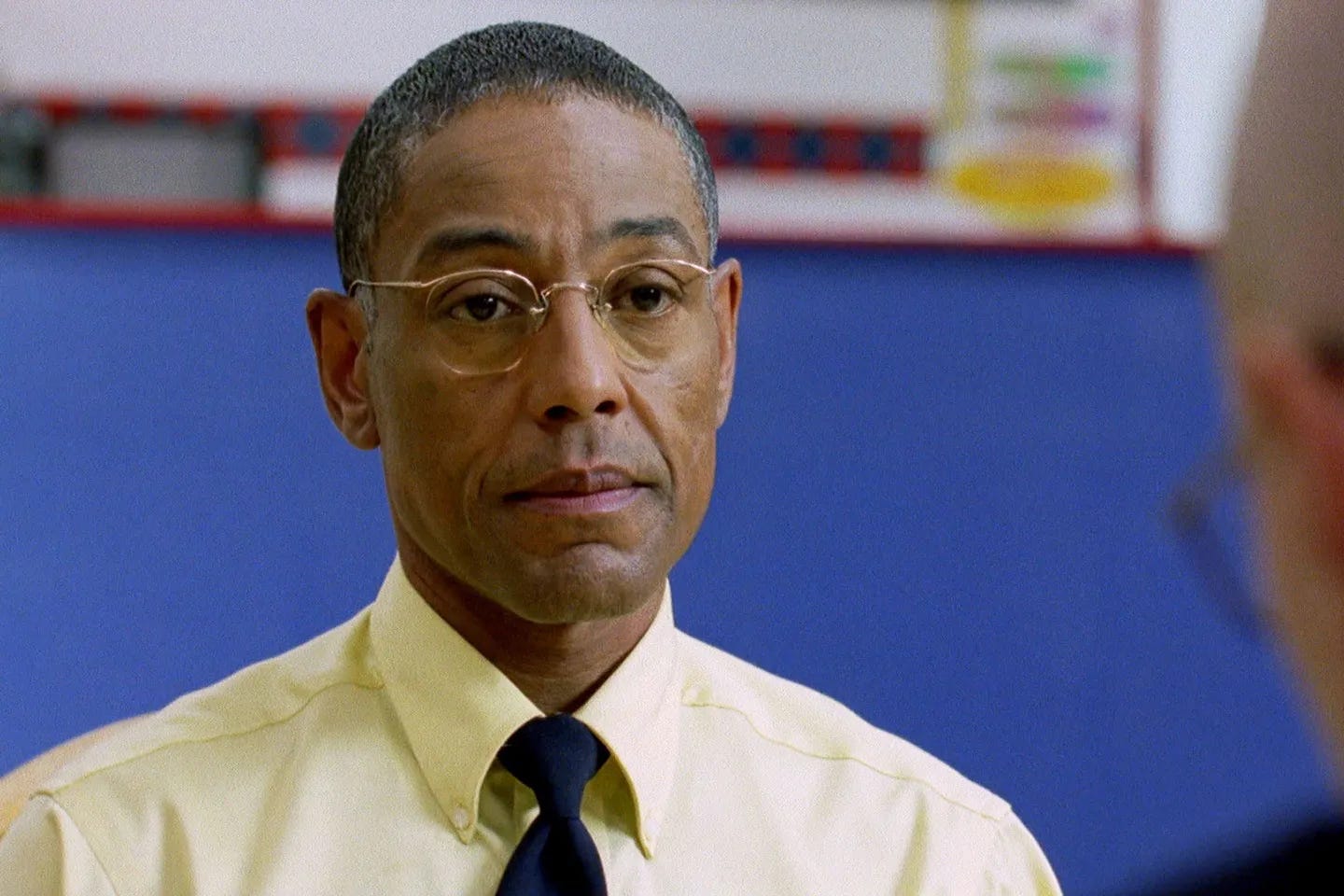
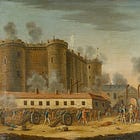
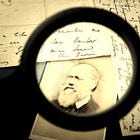
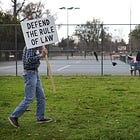

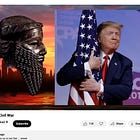


seems to me the Professor is conflating liberalism and progressivism, and the latter very much does very much fit the conservative critique. The influence of progressivism, particularly of its loopy cultural variety on mainstream liberalism is something mainstream liberalism should be very much aware of and guard against. If the last elections haven't taught them this lesson, then probably nothing will.
"Individual freedom, fairness, reciprocity, and tolerance aren’t just political ideals or legal principles. They’re the foundation of a comprehensive way of life, one that many of us who support liberalism have adopted, consciously or not, as a worldview."
----------
This strikes me as an overly broad categorization of the "liberalism" that supposedly constitutes a "comprehensive way of life". It seems to me that these are pretty basic ideas that, at least traditionally, have been paid lip service by both sides of the cultural aisle, and frankly I don't see how any free society can compromise on any of them.
The problem is that the extreme segments of both the left and right are profoundly *illiberal*, both seeking in some way to exert a kind of hegemony upon everyone else. And I fully acknowledge the dangers of what the far left seeks—however, I would argue that the current state of things is that the far left dramatically overplayed its hand and has been brought to heel.
Progressive cultural extremists were right in presuming that they had a good deal of influence through leveraging the power of white guilt—something that I don't like in principle but I'm not categorically opposed to in practice since, lets face it, how many social reforms related to the civil rights of blacks and other minorities would really be possible without a healthy dose of white guilt?
Where they erred is in the assumption that this power could be wielded with unrestrained abandon, in order to inject into the liberal cultural hegemony ideas which have long circulated in cultural studies departments but run counter to most people's moral intuition and basic notions of fairness—perhaps best illustrated by the deeply unpopular idea that "only white people can be racist".
Accordingly, they generated a huge backlash that—from where I stand, at least—has effectively burst the progressive bubble and brought it back down to earth. What we have now is more or less the same general dominance of the basic liberal ideals that ought to be present in any society calling itself a Western democracy, that existed before progressive illiberalism used social media to stage a doomed revolution.
Unfortunately, the illiberal right is still using the illiberal left as a pretext in order to impose something far more menacing than cultural hegemony—actual state power. For years we have listened to disingenuous Christians complain about not being able to practice their faith openly, which most reasonable people have seen as nonsense. What they're actually complaining about is not being able to throw their weight around like they once did.
It's one thing to be sympathetic to Christians feeling judged for their beliefs. Most of my life I've felt judged for my lack of religious belief. But you don't see me trying to impose atheism on my fellow Americans—and no, demanding a secular form of government is not an imposition of atheism. It's a restatement of the timeless and bedrock American principle of separation of church and state, which today's illiberal right has openly and explicitly turned against.
But the illiberal right—MAGA, if you will—has made a crucial mistake. You can't control culture with state power—especially not in America. We don't take kindly to that sort of thing. Especially when it cynically exploits the common man to accrue power and feed the fortunes of the obscenely wealthy. Ultimately, the illiberal right is only digging its own grave, sowing the seeds of a backlash that is coming and coming hard.
I've made amends and had my kumbayas with the decent conservatives of the ever-dwindling liberal right. But I'll have zero sympathy for MAGA when their phony populist movement comes crashing down around them, and they face whatever consequences accrue for the unforgivable damage they've done to our country.